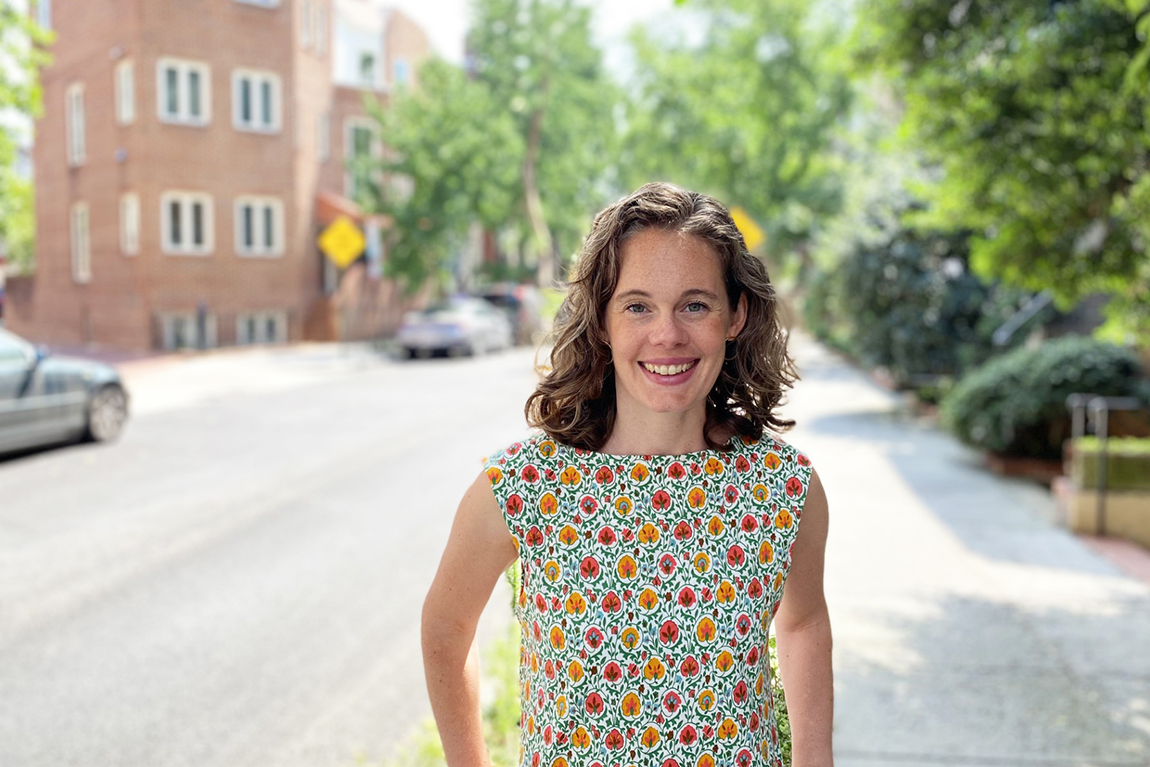Karissa Minnich ’12 Works to Simplify the Delivery of Government Services in D.C.
As civic design manager at The Lab @ DC, Minnich meets with agencies and the residents they serve to design solutions to obstacles to access and equity.By: Meghan Kita Tuesday, August 1, 2023 00:02 PM
 Karissa Minnich ’12
Karissa Minnich ’12Listen to a more extensive interview on the alumni podcast 2400 Chew
To demonstrate what she does, Karissa Minnich ’12, a civic design manager at The Lab @ DC, gives the example of what might happen if a Washington, D.C., resident were unable to pay their electric bill. There is a program called the Low Income Home Energy Assistance Program, or LIHEAP, offered through the D.C. Department of Energy & Environment, but the average person would likely not know to search for “LIHEAP D.C.” online. They might, instead, Google something like “help paying my electric bill.” Thinking through the process of how D.C. residents find and access services is part of Minnich’s job. The other part is using that information to change the process to make it simpler and more accessible. This is called “human-centered design.”
“Human-centered design, for me, centers around empathy, around what residents are thinking when they need a government service,” says Minnich, who was a sociology and political science double major at Muhlenberg. “We do a lot of mapping. We sit down with agencies and ask, ‘How do people show up to you or find out they need to talk to you? Where are the places people get stuck?’ It helps us think about how we can redesign that process so errors or frustrations don’t come up in the future.”
Prior to joining The Lab @ DC, Minnich worked for a food access nonprofit, an interest that she’d had throughout her time at Muhlenberg. She was one of the founding members of the Muhlenberg Community Garden and conducted independent research as a senior on the Farm to School movement. She later earned a master’s in nonprofit management from The George Washington University while working for the food access nonprofit DC Greens. Eventually, she became interested in working on a broader range of issues, which brought her to The Lab @ DC.
Initially, she assisted on research and evaluation projects. Her first foray into human-centered design was directing Form-a-palooza, a public-facing event that brought together residents and government agencies to rethink and simplify the forms required to access those agencies’ services.
“People love to hate on forms. We can joke about forms being these frustrating things we have to do, but they’re the front door of services in many cases,” Minnich says. “If I can’t figure out how to get through the application process for food assistance, I might not be able to feed my family. There are really important implications for equity and access.”
Today, Minnich leads a team of five. The day-to-day work is a mix of meeting with government agencies and meeting with the residents they serve. A challenge of the work is the slow pace at which it can happen, given the level of checks and balances inherent in any government-related process. But Minnich relishes the opportunity to effect change on a local level.
“I’m a D.C. resident, and I love that I get to serve my neighbors,” she says. “I get to see very tangibly the work that I’m doing and interact with the people I’m serving. Local work is special and unique in that way.”
